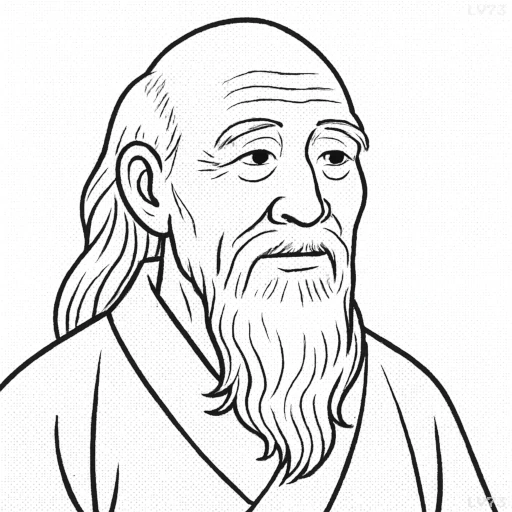“When virtue is lost, benevolence appears, when benevolence is lost right conduct appears, when right conduct is lost, expedience appears. Expediency is the mere shadow of right and truth; it is the beginning of disorder.”

- 571 BC? – 470 BC?
- Born in China
- Philosopher
table of contents
Quote
“When virtue is lost, benevolence appears, when benevolence is lost right conduct appears, when right conduct is lost, expedience appears. Expediency is the mere shadow of right and truth; it is the beginning of disorder.”
Explanation
This quote from Laozi traces the decline of moral values in society and the gradual shift from genuine virtue to mere expediency. Laozi suggests that when virtue—the highest form of moral integrity—is lost, people may substitute it with benevolence (kindness and goodwill), which is still positive but is a step down from the purity of virtue. As this process continues, the loss of benevolence leads to right conduct, a more formal adherence to rules or principles of behavior, but still lacking the deeper, inner moral foundation. Finally, when right conduct itself fades, society resorts to expediency, which represents actions motivated by self-interest or convenience rather than moral principles. Laozi warns that expediency is merely a shadow of true virtue and truth—it is the beginning of disorder, as decisions are made based on short-term benefit rather than long-term moral integrity.
In modern society, this quote serves as a warning against the growing tendency to prioritize convenience or pragmatism over deeper moral values. When society or individuals prioritize efficiency or the quick fix (expediency) over genuine virtue or ethical principles, it leads to instability and disorder. This can be observed in areas like politics, business, or even personal relationships, where decisions are made based on what is easiest or most beneficial in the short term, rather than what is right or just.
Laozi’s wisdom teaches that true order and harmony come from living in accordance with virtue and truth, and that when these are lost, society or individuals may end up making choices that undermine long-term well-being and sustainable progress. By focusing on virtue as the foundation of decision-making, rather than on expediency, we can avoid the chaos and disorder that arise from the erosion of moral integrity. Laozi’s teaching encourages us to cultivate a deeper sense of virtue in all our actions, ensuring that we act from a place of truth and authenticity rather than from mere convenience.
Would you like to share your impressions or related stories about this quote in the comments section?



